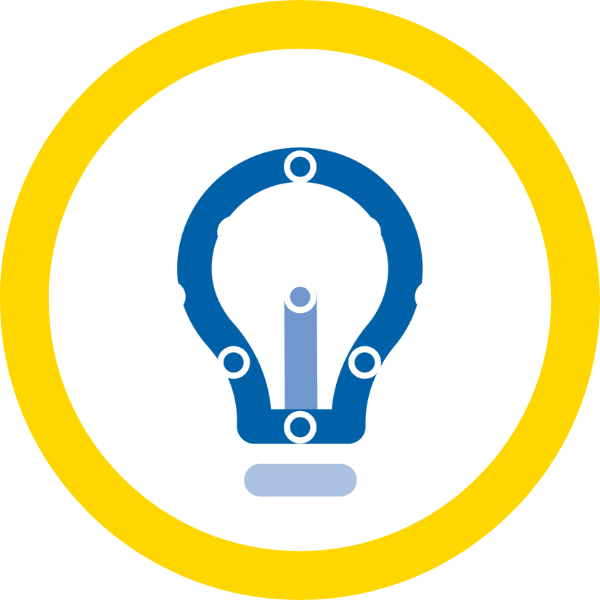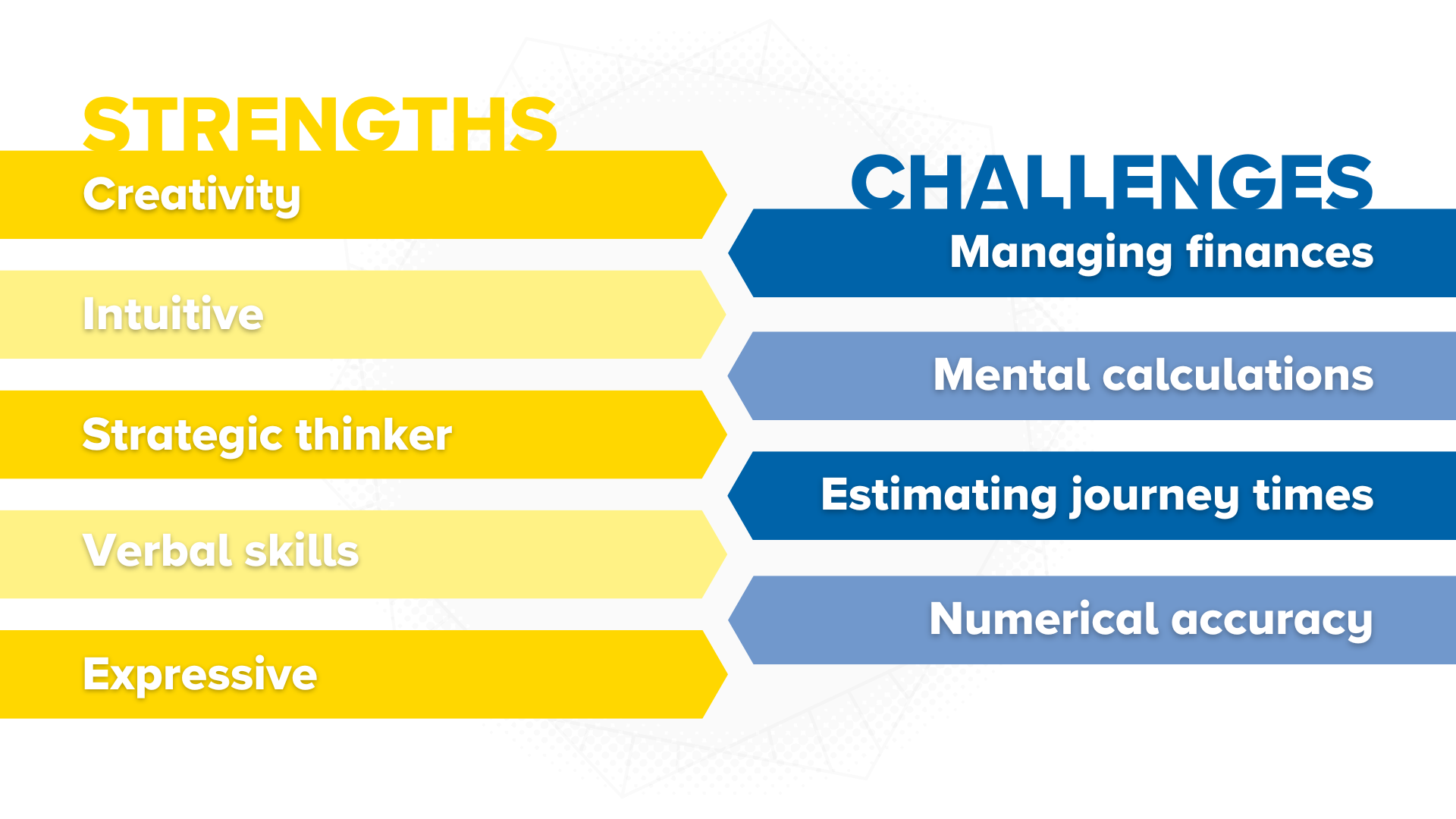Dyscalculia is a specific and persistent difficulty in understanding numbers, which can lead to a wide range of challenges in learning maths as well as in everyday life.
Dyscalculia affects around 6% of the UK population.


Learn about the signs, strengths and challenges of Dyscalculia, and how you can get support.
Dyscalculia is a specific and persistent difficulty in understanding numbers, which can lead to a wide range of challenges in learning maths as well as in everyday life.
Dyscalculia affects around 6% of the UK population.

Until 2019, anyone with a specific maths difficulty was considered to be dyscalculic. However, we now know that there is a spectrum of maths learning difficulties, with certain characteristics singling out dyscalculia as the most severe.
Because it is a maths-related condition, dyscalculic people may avoid jobs that require a lot of numerical work. However, with the right environment and support in place, dyscalculic people can thrive in any job they turn their mind to.

Like other neurodiverse conditions, dyscalculia brings with it both strengths and challenges. Whilst dyscalculic people will experience these in different varieties and intensities, common strengths associated with the condition include:
Things a dyscalculic person may struggle with include:
You might notice that dyscalculic people use their fingers or tally marks to keep track of numbers whilst counting. They may also get several different answers to the same calculation and need to repeatedly check their workings. They might struggle with using maths software such as Microsoft Excel too.
If you think you might be dyscalculic, the first step is to do your research and learn as much as you can about the condition.
We all experience challenges with different behaviours and tasks, but if you find you notice the characteristics of dyscalculia more prominently in your own experiences – and importantly, it is having a significant impact on your life – it’s best to take action to get support.
A formal diagnostic assessment should only be carried out by an assessor who is qualified at Level 7 in the assessment of dyscalculia and holds either an AMBDA dyscalculia or an Assessment Practising Certificate (APC) in dyscalculia.
An informal assessment of maths learning difficulties or maths screening can be carried out by someone who has experience in maths learning difficulties and learning difficulties in general. A screening test can help to identify any traits of dyscalculic behaviour which may warrant a formal diagnostic assessment.
Visit the ‘What to do if you believe you might be neurodivergent’ page for more information.
We know that when you’re struggling emotionally, practically and financially, often the hardest step to take is reaching out and asking for support. And these challenges can have even more of an impact if you’re neurodivergent. But everyone experiences challenges in life, and it’s important to remember that you are not alone – after all, there are thousands of neurodiverse engineers just like you around the world, many of whom may be in a similar situation.
Our support is here to help you live better and thrive – whatever your circumstances. So if you’re ready to get in touch with us, we’re ready to listen to your needs and offer whatever support we can.
You are not alone. Hear from people across the engineering community on how they’ve managed their neurodiversity journey, and what being a neurodivergent engineer means to them.

Learn how we helped Mikaela get a diagnosis for ADHD so that she could pass her placement with confidence.

Read Stuart's story of his experiences with Autism – and how his diagnosis helped him understand himself better.

Read Brian's story of how he got a diagnosis for dyslexia - but wishes the signs had been spotted sooner.